Highlights from October 2023
Germany
Thomas Murray’s network managers conducted on-site visits in Germany last month, reviewing several banks and the financial market infrastructure (FMI).
Germany has implemented changes to its tax reclaim process – these used to be performed by banks on behalf of clients, but Germany is moving to digitise it. Some of these changes happened while our network managers were on the ground.
In December 2022, Germany and Switzerland signed an agreement that, from 1 December 2023, the submission of Withholding Tax Reclaims in Germany for Swiss residents will exclusively be in an electronic format. Paper tax reclaim forms won’t be valid after that date, and all tax reclaim forms must be filed digitally.
Clearstream Banking Frankfurt, the German central securities depository (CSD) has implemented all of the European Central Securities Depositories Regulation (CSDR) requirements in terms of the penalty regime. The CSD is now aligning its practices with the ISO 2022 standard and standardising its collateral management platform as part of the G7’s digitalisation project.
This is linked to other moves by Germany to future-proof its financial sector and make it more attractive for investors. In 2021 it enacted the Electronic Securities Act, which:
- introduced a new category of electronic securities that are equivalent to traditional securities issued by means of a physical certificate; and
- allows for the use of blockchain technology to issue and register securities.
In August of this year, it passed a draft law – the Financing for the Future Act – which is aimed at creating more favourable conditions for start-ups and SMEs, making access to capital markets easier, and generally strengthening and upgrading Germany’s financial sector.
Spain
The big development in the Spanish market at the moment is the third phase of its market reform programme (not to be confused with Spain’s ‘third market reform’ of its wholesale power market).
These reforms are designed to update and harmonise the country’s securities clearing, settlement and registration system. The aim is to further align the Spanish market with European standards and regulations, such as CSDR and the Target2-Securities (T2S) platform. T2S is a pan-European settlement system that seeks to facilitate cross-border transactions and reduce costs and risks.
- The first phase (completed in February 2016) introduced a new central counterparty (CCP) entity called BME Clearing. BME acts as an intermediary between buyers and sellers of securities, reducing the risk of default and increasing market efficiency. BME claims to be the only CCP in Europe currently clearing bitcoin for institutional investors.
- Implemented in September 2017, the second phase created a single, centralised system called ARCO. This is managed by Iberclear, the Spanish CSD.
- Phase 3, expected to be finalised by the end of this year, will connect the Spanish market to the T2S platform.
The T2S platform will enable faster and cheaper cross-border settlement, and could allow for the use of a single CSD for multiple markets. However, it will also require the adaptation to a new technical and regulatory environment, as well as coordination with other CSDs and market infrastructures.
Spain requires the registration of the ownership of shares during the settlement process, which complicates operations for all participants. It attempted to change this with the first two phases of the market reform, but the process remains complicated.
Instead, Spain is removing the post-trade interface so that share ownership registration is no longer required, but it could take up to two years for the necessary changes to be made. Spain’s CSD is issuing new procedures, and towards the end of 2024 it’s expected that share registration will be simplified.
Israel and Palestine
The Risk Committee held an urgent meeting on 9 October after Hamas attacked Israel, kidnapping hostages and leading to open conflict between Israel and Palestine. The Committee is monitoring the region on an ongoing basis, including neighbouring jurisdictions that are (or may be) directly affected.
There are widespread reports that Israel and Lebanon have traded airstrikes as Israel attempts to stop Hezbollah from entering the conflict in support of Hamas.
King Abdullah of Jordan announced on 17 October that Egypt and Jordan would not be accepting refugees from Gaza, though Egypt has partially opened the Rafah border to a small number of injured Palestinians and to allow in limited humanitarian aid. Jordan is home to the world’s largest Palestinian population, with more than 2 million registered Palestinian refugees living there.
In September, Risk Committee members conducted in-person visits to Jordan, Lebanon and Egypt. They reported back to the Committee on 1 November and a summary of their findings will be included in the next Update.
Russia
In-person visits not being possible, the Committee conducted its review through questionnaire responses.
Access to the market by foreign investors remains tightly restricted. Funds cannot be repatriated, nor assets moved between accounts. Foreign investors wishing to sell their assets must do so at a heavy loss of value (at least 50%).
The Russian government is trying to make the market as liquid as possible to tackle inflation. It recently allowed for the automatic conversion of depositary receipts (DRs) into shares in an effort to attract investment, but to little effect.
Operationally, the use of SWIFT in the local market has been suspended. The National Settlement Depository (NSD), Russia’s CSD, will still exchange messages with foreign international CSDs and custodians, but local use is currently forbidden. A “SWIFT-like” platform is being used instead.
The Moscow Exchange (MOEX) is trying to introduce new products to expand investment opportunities, using alternative currencies, and strengthening its ties with China and Turkey.
If you missed it, Germán Gutiérrez Mejia’s update on Russia and Ukraine’s capital markets is available on our website.
Colombia
In-person visits were conducted with several banks in Colombia, where the banking sector remains stable and was largely spared the worst of the massive ransomware attack on Colombia in September.
The main event in the Colombian market right now is the integration between the Colombian Stock Exchange (Bolsa de Valores de Colombia – BVC) with the stock exchanges of Peru (Grupo Bolsa de Valores de Lima – BVL) and Chile (Santiago Stock Exchange – BCS). The integration process includes the merger of the three stock exchanges, clearing houses, and central securities depositories (CSDs).
The proposed integrated business model is based on:
- integration into a single platform;
- integration of clearing and settlement using the US dollar as the settlement currency; and
- aligning the process of corporate actions.
Peru will create its own CCP.
The integration of trading will begin once the first phase of the plan ends (which is scheduled for the beginning of 2025).
Colombia has recently introduced a wave of reforms, which have specifically impacted pension funds – the largest investors in the Colombian market. This has made investors more cautious, even as regulators continue their efforts to enhance competitiveness in the market.
BVC is working on attracting investors by introducing new securities – for example, exchange-traded funds (ETFs), crypto currencies and so on. However, these plans are in their very early stages.
The Colombian CCP is now recognised by the European Securities and Markets Authority, which means it can offer services to EU bank branches or subsidiaries as clearing members without significant capital buffers. The CCP has successfully reduced processing times from hours to minutes.
The Depósito Central de Valores (DCV, which handles securities in electronic form) is currently in the late testing stages of its modernisation project and is expected to introduce a new system in Q1 2024. DCV is also completing its integration process with financial market infrastructures (FMIs).

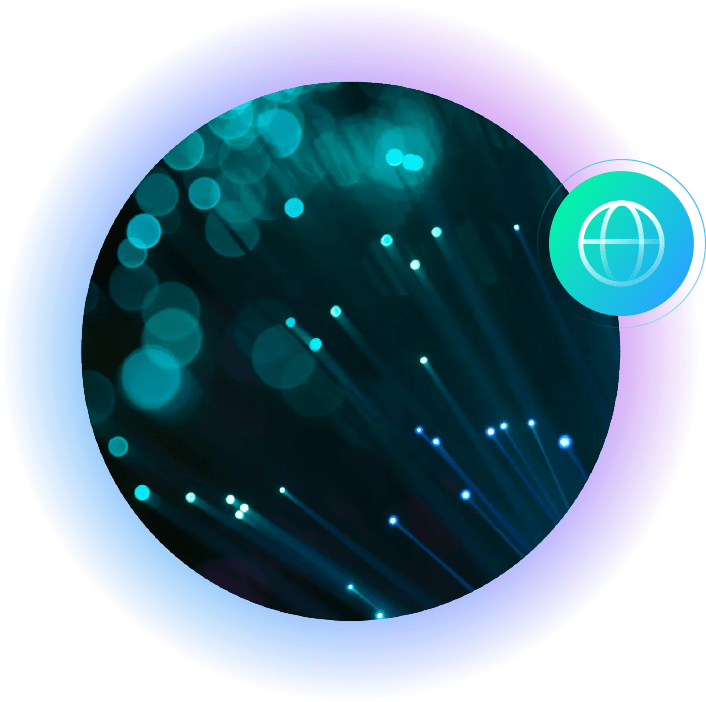
Orbit Intelligence
Centralise your monitoring and reporting, access Thomas Murray risk assessments and third-party data feeds.
We safeguard clients and their communities
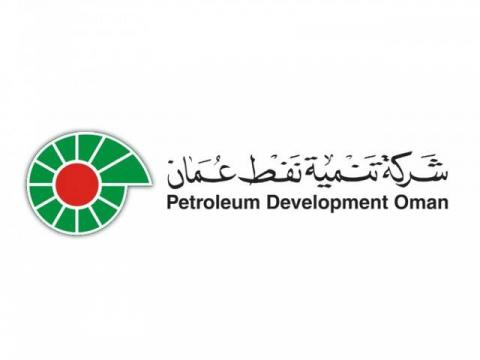
Petroleum Development Oman Pension Fund
“Thomas Murray has been a very valuable partner in the selection process of our new custodian for Petroleum Development Oman Pension Fund.”
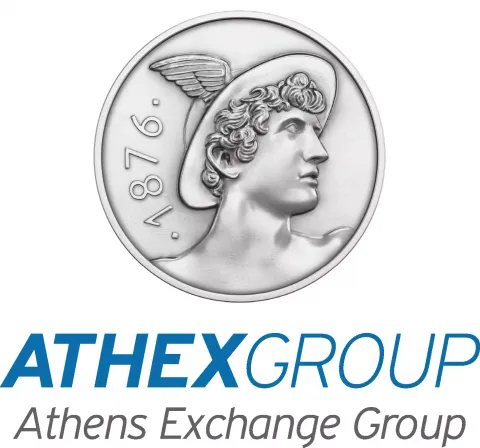
ATHEX
"Thomas Murray now plays a key role in helping us to detect and remediate issues in our security posture, and to quantify ATHEX's security performance to our directors and customers."

Northern Trust
“Thomas Murray provides Northern Trust with a range of RFP products, services and technology, delivering an efficient and cost-effective solution that frees our network managers up to focus on higher Value activities.”
Insights

Why 72 hours is the New Standard for M&A Cyber Due Diligence
A decade ago, cyber due diligence sat somewhere between “nice to have” and “we’ll deal with it post-close.” That world no longer exists.
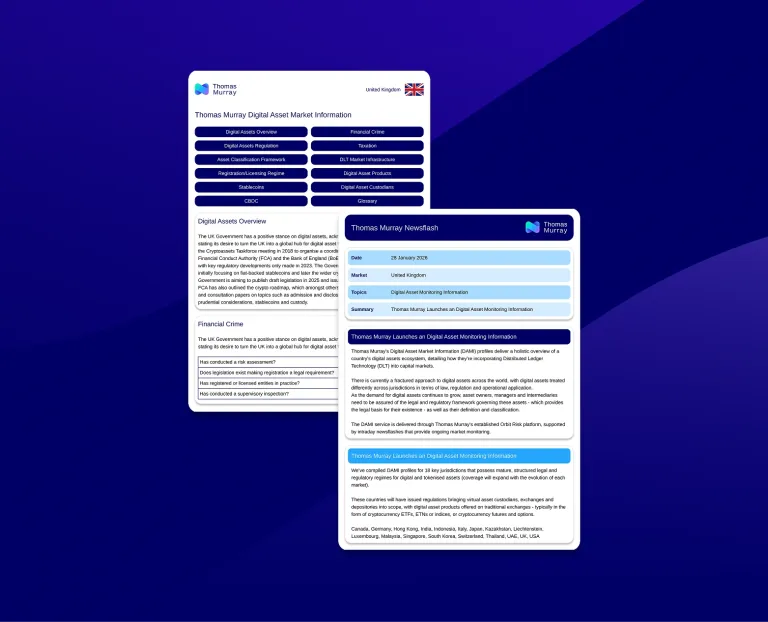
Thomas Murray Launches Digital Asset Market Information (DAMI)
Thomas Murray, a global leader in risk management, due diligence, and cybersecurity services, is proud to announce the launch of Digital Asset Market Information (DAMI).
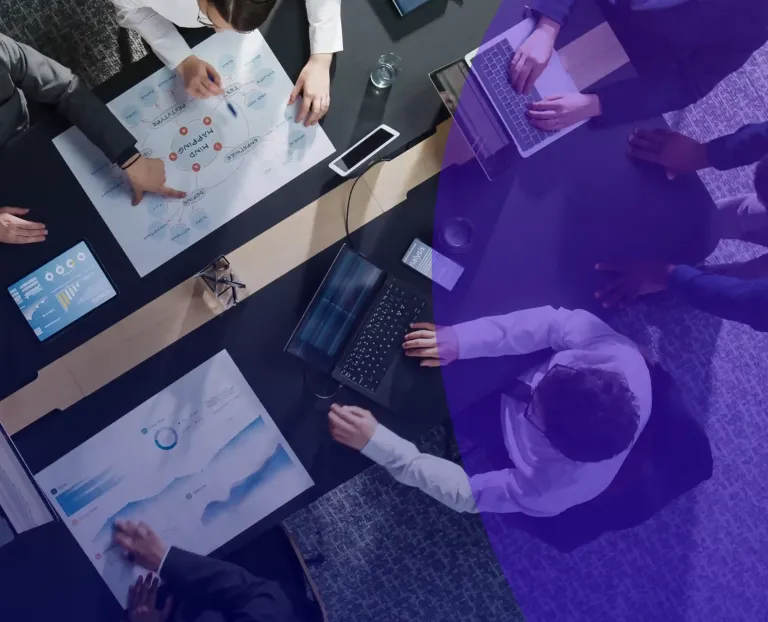
Solving the "Scale Paradox": How to Automate Portfolio Oversight with Fewer People
In 2026, private equity technical teams are facing a "Scale Paradox": portfolios are growing in complexity, while in the internal teams responsible for operations and cybersecurity oversight, headcounts remain stagnant.

How Private Equity Hackers Choose Their Targets
Private equity firms sit at the intersection of high-value financial transactions, sensitive deal data, and an expanding portfolio of technology heavy portfolio companies – and it’s this combination that makes PE an attractive target for cyberthreat actors.

